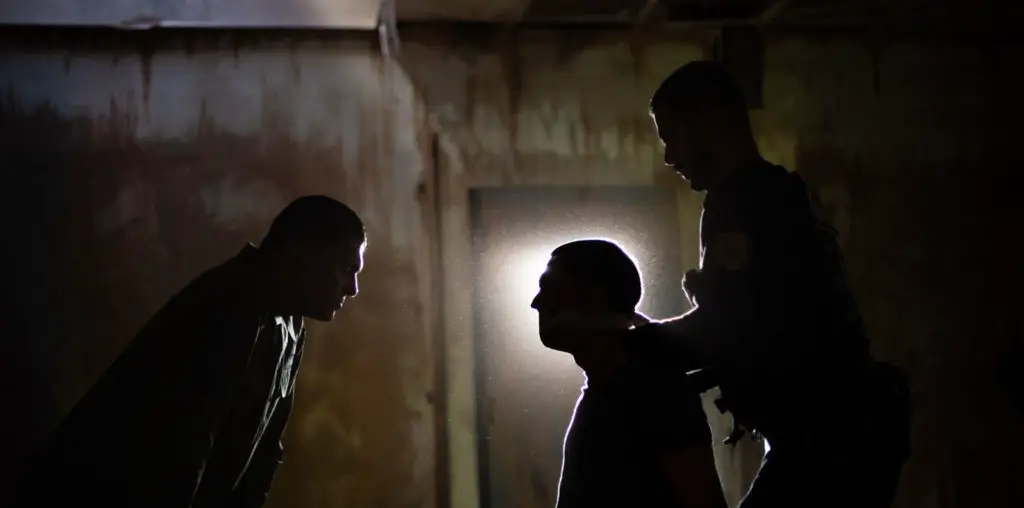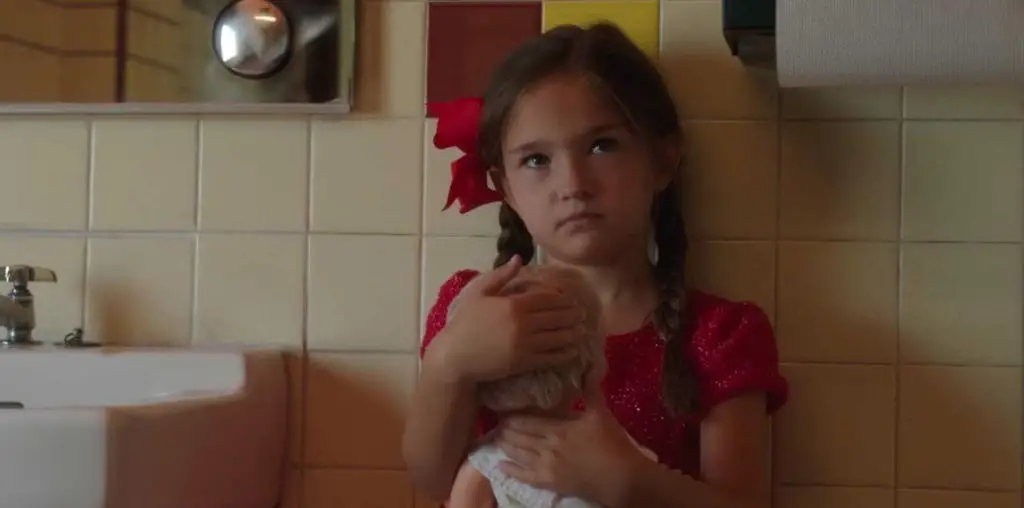
This review was originally published on September 17, 2011…
The ending of Daniel Nettheim’s The Hunter is one that I’ll be thinking about for some time. Hell, the entire third act. What did it all mean? Why did it need to end the way it did, and what does that say about the film? I don’t even know how I feel about it all now. But I’m ahead of myself…
Willem Dafoe plays a mercenary hired by a biotech firm to find a Tasmanian tiger, and return with tissue, organ and other biological samples. The rub here is that the Tasmanian tiger is something of a myth nowadays, since it has been officially declared extinct for decades. Still, the firm has reasons to believe at least one specimen is still breathing, so Dafoe’s character, under the assumed identity of a university researcher named Martin David, heads into the wilds of Tasmania.
Now, the living conditions in the Tasmanian wilderness are one thing, but Martin’s accommodations, set up by local wilderness guide Jack (Sam Neill), leave even more to be desired. The generator at the house is busted, the plumbing sucks and Martin’s clandestine hunting expedition keeps getting questioned by two children, the precocious Sass (Morgana Davies) and seemingly mute Bike (Finn Woodlock), while their mother Lucy (Frances O’Connor) spends the better part of the first chunk of the movie unconscious in her bed, grieving a husband who went missing in the wilderness. On top of that, the locals don’t seem to be too impressed with yet another learned “greenie” (environmentalist) in their neck of the woods, and they aren’t the sort to hide their hatred.
Still, Martin soldiers on, hunting for days at a time before returning to the house. His presence brings some order and civility to the household, and he begins to bond with the children while Lucy slowly recovers from her prescription drugs-induced stupor. Of course, Martin isn’t there to play house, and the biotech firm isn’t the most patient, so he’s back out on the hunt… and he might just have found something.
I know what you’re thinking: this sounds like some touchy-feely emotional melodrama where a rough and tumble rogue finds his humanity and heals a broken family in the process. Sure, and that is in there, but not in so obvious a broad stroke as I’ve painted above. See, I’m really not setting a mood or explaining things with the level of subtlety that the film employs, or even selling how incredible the cinematography is in its ability to draw you into the image. It really isn’t as simple as all that synopsis above, and the film manages to mesmerize you into the experience, while keeping you off-guard and guessing.
For one, you never really know what’s going on in Martin’s mind. Is he there strictly for the business, but just doing his best to fit in to keep his profile low and the hassles even lower? Does he really care for the family? Does he even care why he was hired, or what his end goal really is? Dafoe plays it all close, and allows the audience to come to their own conclusions about him and his actions, and there’s just enough ambiguity to the entire film to keep your deepest attention. In the end, you’ll have answers for yourself, and some of them will have been handed to you, but until it’s over, you don’t know how it’s going to deliver. That experience of going along with a mystery and not spending my time guessing the ending, for this sometimes cinematically cynical writer, was greatly appreciated.
For me, the film was a slowburn that I couldn’t look away from, and even the emotional notes felt natural rather than heart-string pulling and contrived. I got caught up in the hunt, was left thinking about the film long after it ended and I really couldn’t ask for anything more.

